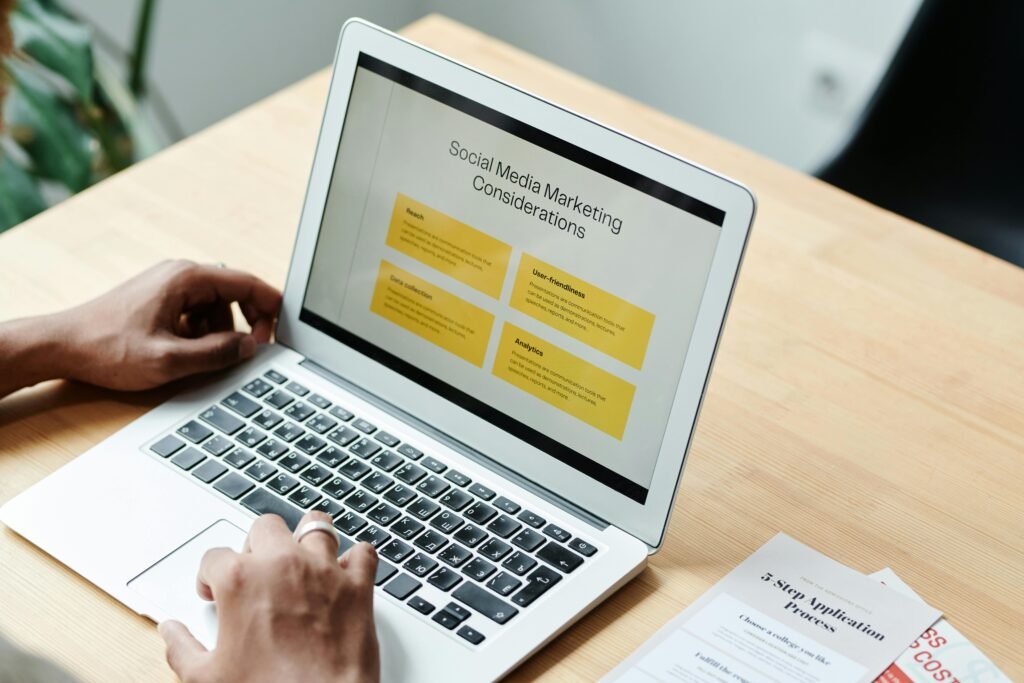Why Digital Marketing is Important for Businesses in 2025
Introduction
The business world is evolving faster than ever before. In 2025, most people live online — from shopping and education to entertainment and social interactions.
Traditional marketing methods like TV ads, print media, and billboards are no longer enough to capture attention or drive consistent growth.
This is where digital marketing comes in.
Digital marketing is the backbone of modern businesses, helping brands reach the right audience, build strong relationships, and boost sales at a lower cost.
In this blog, we’ll explore why digital marketing is so important for businesses in 2025, its benefits, and the strategies that can help you stay ahead of the competition.
1. What is Digital Marketing?
Digital Marketing is the process of promoting products, services, or brands using online channels and digital platforms such as:
- Search engines like Google
- Social media platforms like Instagram, Facebook, and LinkedIn
- Websites and blogs
- Emails and mobile apps
Unlike traditional marketing, digital marketing allows businesses to target specific audiences, measure results in real-time, and build long-term brand loyalty.
💡 Example:
A small bakery in Mumbai runs an Instagram ad for a new dessert.
- Customers nearby see the ad on their phones, place an order online, and leave reviews.
- The bakery increases sales without spending on costly print ads.

2. Why Digital Marketing is Important in 2025
The year 2025 brings new challenges and opportunities for businesses.
Here’s why digital marketing is no longer optional — it’s a must-have strategy for survival and growth.
1. Online Presence is the New Business Identity
In 2025, a business without a strong online presence might as well not exist.
Consumers rely on Google searches, social media, and online reviews before making purchasing decisions.
- Fact: According to recent reports, 92% of consumers check online reviews before buying a product or service.
- If your brand isn’t visible online, you are losing potential customers to competitors.
Solution:
- Build a professional website.
- Optimize it for search engines (SEO).
- Maintain active profiles on relevant social media platforms.
2. People Spend More Time Online Than Ever Before
The average person now spends 6–7 hours online daily.
From watching YouTube videos to shopping on Amazon, your target audience is already online, waiting to be reached.
Digital marketing helps you connect with them where they are, unlike traditional ads that interrupt their experience.
Example:
A clothing brand can run Facebook ads targeting 18–30-year-old fashion enthusiasts in specific locations, ensuring highly targeted marketing.
3. Cost-Effective Compared to Traditional Marketing
Running a newspaper ad or TV commercial is expensive and often unmeasurable.
Digital marketing, on the other hand, offers affordable solutions with real-time analytics.
| Marketing Type | Cost Example | Audience Reach |
|---|---|---|
| TV Advertisement | ₹1,00,000+ per slot | Limited, regional |
| Newspaper Ad | ₹50,000+ per page | Local |
| Google Ads | ₹500 per day | Global, targeted |
| Instagram Ads | ₹300 per day | Highly targeted |
Even small businesses with limited budgets can run high-performing digital campaigns.
4. Personalized Customer Experience
In 2025, customers expect personalized marketing experiences.
They don’t want generic ads — they want brands to understand their needs and preferences.
Digital marketing tools like email automation, remarketing, and AI-powered recommendations make this possible.
Example:
- You browse shoes on an e-commerce site.
- Later, you see Instagram ads for the same shoes with a discount coupon.
- This personalized approach increases the chances of conversion.
5. Real-Time Data and Measurable Results
Traditional marketing is like shooting in the dark — you never know what’s working.
With digital marketing, you can track every click, view, and purchase in real time.
Tools like:
- Google Analytics
- Facebook Ads Manager
- SEMrush
These help businesses analyze performance, make informed decisions, and optimize strategies instantly.
6. Mobile-First World
In 2025, mobile phones dominate the internet.
Over 80% of internet users access websites and apps via mobile devices.
Digital marketing ensures that your ads, websites, and campaigns are mobile-friendly, delivering seamless experiences to users.
Example:
Food delivery apps like Zomato and Swiggy run location-based ads that target users near specific restaurants.
7. Global Reach with Local Targeting
Digital marketing allows businesses to go global while still focusing on local customers.
- A startup in India can sell products to customers in the US through Instagram or Shopify.
- At the same time, it can target local buyers with Google My Business and location-specific ads.
This scalability is impossible with traditional marketing.
8. Competing with Larger Businesses
Earlier, small businesses couldn’t compete with big brands because of budget limitations.
Digital marketing levels the playing field.
- A small clothing brand can run creative, low-cost campaigns on Instagram.
- If done well, it can outperform bigger competitors.
💡 Pro Tip: Focus on niche marketing to stand out from the crowd.
9. Future-Ready with AI and Automation
Digital marketing in 2025 is heavily driven by Artificial Intelligence (AI) and automation tools.
Businesses that embrace these technologies can stay ahead of competitors.
Examples of AI in digital marketing:
- Chatbots for instant customer support.
- Predictive analytics for customer behavior.
- Personalized ad recommendations.
These tools save time, improve accuracy, and deliver better ROI.
3. Key Digital Marketing Strategies for Businesses in 2025
Here are some powerful strategies that every business should implement:

1. Search Engine Optimization (SEO)
SEO helps your website rank higher on Google so potential customers can find you easily.
Why it’s important:
- 75% of users never scroll past the first page of Google.
- Organic traffic builds trust and long-term results.
💡 Tip: Focus on voice search optimization in 2025 as voice assistants like Alexa and Google Assistant are becoming more popular.
2. Social Media Marketing (SMM)
Social media is where most people spend their time, making it a must-have marketing channel.
Top platforms for 2025:
- YouTube
- TikTok (region-dependent)
Goals:
- Build brand awareness.
- Run targeted ads.
- Engage directly with customers.
3. Content Marketing
High-quality content is the backbone of digital marketing.
This includes:
- Blog posts
- Videos
- Infographics
- Podcasts
Example:
A fitness brand posts a YouTube series on “Home Workouts,” attracting thousands of subscribers who later buy its products.
4. Email Marketing
Email marketing remains one of the highest ROI channels in 2025.
Use it to:
- Nurture leads.
- Send personalized offers.
- Retain existing customers.
5. Paid Advertising (PPC)
Google Ads and social media ads deliver instant results when done right.
Benefits:
- Target specific audiences.
- Generate quick sales.
- Perfect for seasonal promotions.
4. Benefits of Digital Marketing for Businesses
Here’s a quick overview of why digital marketing is a game-changer:
| Benefit | Impact |
|---|---|
| Global reach | Expand business internationally |
| Cost-effective | Affordable for all sizes of businesses |
| Real-time analytics | Measure and improve campaigns instantly |
| Increased sales | Drive conversions through targeted ads |
| Brand awareness | Build trust and visibility |
| Better customer engagement | Direct interaction through social media |
5. Future Trends in Digital Marketing (2025 and Beyond)
Businesses must stay updated with the latest trends to remain competitive.
1. AI-Powered Marketing
AI will dominate everything from ad targeting to customer service.
2. Short-Form Video Content
Platforms like Instagram Reels and YouTube Shorts will continue to grow.
3. Voice Search Optimization
With more smart speakers and voice assistants, businesses must optimize content for voice queries.
4. Sustainability and Ethical Marketing
Consumers now prefer eco-friendly and socially responsible brands.
Transparency will become a key factor in marketing.
6. Final Tips for Businesses
- Start building your digital presence today — don’t wait for competitors to get ahead.
- Track performance using analytics tools regularly.
- Stay flexible and open to adopting new technologies.
- Focus on customer experience, not just sales.
- Keep learning — digital marketing trends change rapidly.
Conclusion
In 2025, digital marketing isn’t just important — it’s essential for survival.
With most consumers online, businesses must embrace digital strategies to connect, engage, and grow.
From SEO and social media marketing to AI-driven tools, the possibilities are endless.
Whether you run a small startup or a large enterprise, investing in digital marketing today will ensure your brand remains future-ready and competitive.
